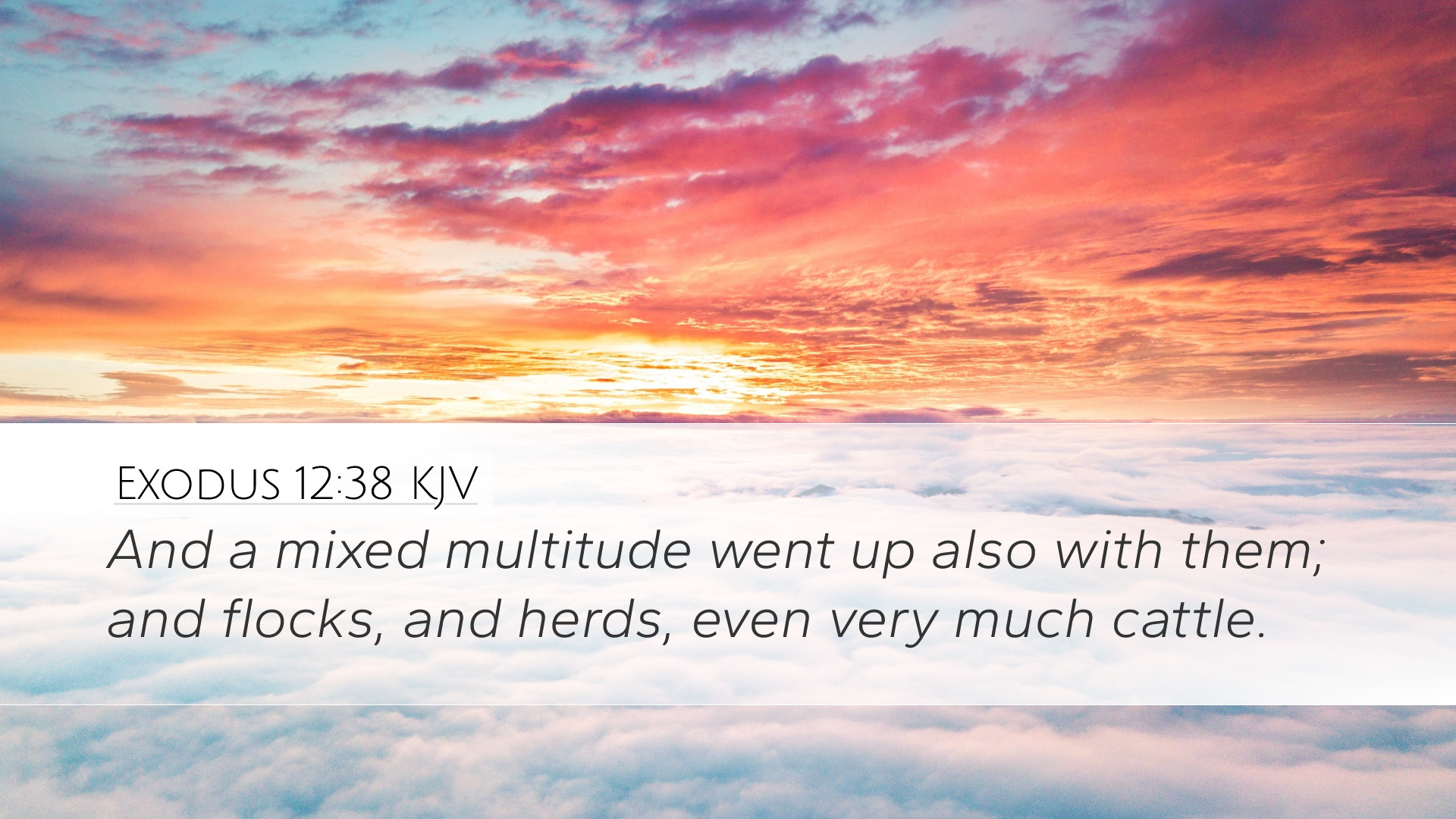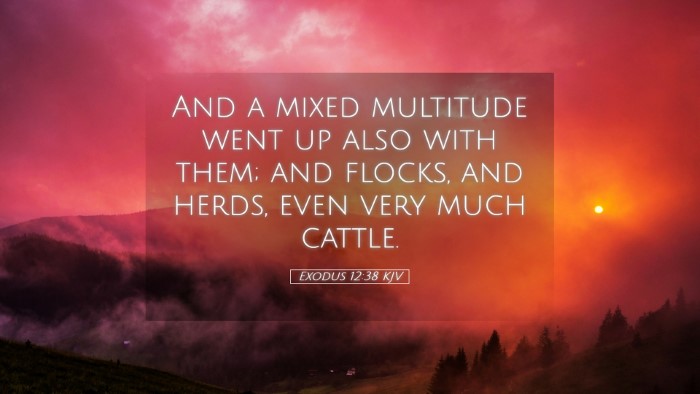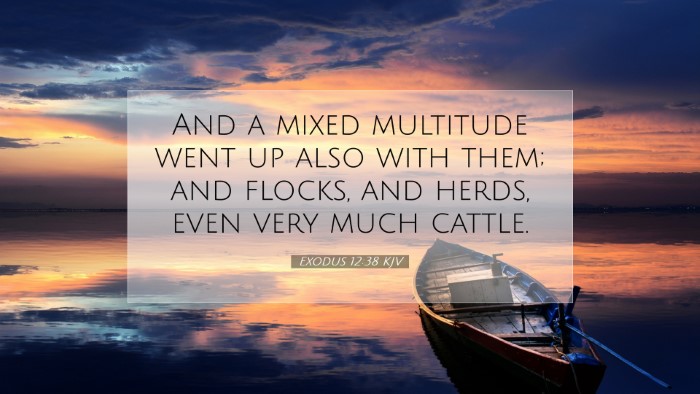Commentary on Exodus 12:38
Exodus 12:38 states: "A mixed multitude went up also with them; and flocks, and herds, even very much cattle."
Introduction
This verse marks a significant moment in the history of Israel, as it highlights not only the physical departure from Egypt but also the diverse constituency that left with the Israelites. The phrase "mixed multitude" indicates that the Exodus was not merely an ethnic or national event but involved various groups coming together in response to God’s deliverance.
Historical Context
The Exodus, a pivotal event in the Hebrew Bible, symbolizes God’s salvation and His steadfast commitment to His covenant people. The "mixed multitude" refers to non-Israelites who were part of the exodus, illustrating God's encompassing plan for redemption.
Insights from Commentaries
Matthew Henry's Commentary
Matthew Henry emphasizes that the "mixed multitude" included both Egyptians and possibly other nations who had been enslaved alongside the Israelites. This exodus signifies a turning point where the oppressed sought freedom under God’s leadership. Henry notes that their presence highlights God's mercy extended beyond the Israelites, showcasing a theme of inclusivity in God’s plan of salvation.
Albert Barnes' Notes on the Bible
Barnes provides a detailed analysis of the term "mixed multitude." He points out that it is crucial to understand this group not merely as an assortment of people but as individuals who witnessed God’s miracles and the authority of Moses. This mixed multitude serves to illustrate the extent of God’s power—it attracted even those outside of Israel. Moreover, Barnes warns that mixed motives may have existed among this group, suggesting that some may have followed for benefits rather than faith.
Adam Clarke's Commentary
Adam Clarke delves into the implications of this diverse group following Moses. He remarks that the presence of a mixed multitude served as a reminder of the universal scope of God’s grace. Clarke posits that while these additional individuals participated in the Israelite's departure, their integration into the Israelite community would lead to future challenges regarding identity and faithfulness, noting a complexity in community and belief systems.
Theological Implications
Theologically, Exodus 12:38 raises questions about the nature of God's call and the community of faith. The inclusion of the mixed multitude can be viewed as a foreshadowing of the Gospel message which invites all nations to partake in God's promises. It stands as a testimony to the unifying power of God’s deliverance for all humankind.
God’s Strategy for Inclusion
This verse illustrates God’s strategy of inclusion. In a spiritual sense, it reflects the reality that the Kingdom of God transcends racial, cultural, and national boundaries. It reveals that anyone, regardless of background, can be a part of God’s redemptive plan.
Challenges of Diversity
However, the challenges of a diverse community are foreshadowed in this verse. The integration of various beliefs and backgrounds can lead to tensions and difficulties in maintaining faithfulness to God’s commands. This is a cautionary tale for contemporary faith communities, encouraging vigilance in maintaining doctrinal purity and unity amidst diversity.
Practical Applications for Faith Communities
How can modern-day faith communities respond to the lessons found in Exodus 12:38? Here are a few practical applications:
- Embrace Diversity: Pastors and leaders should cultivate an environment that welcomes individuals from various backgrounds, recognizing that God is at work through a multitude of experiences and perspectives.
- Focus on Unity in Christ: While diversity enriches the community, leaders should emphasize the unity found in Christ. Teachings should reflect that diversity is a strength, not a division.
- Educate on Historical Context: Understanding the historical and theological implications of the mixed multitude can provide deeper insights into community dynamics and God’s overarching gospel narrative.
- Encourage Inclusivity in Mission: Just as the Israelites brought others with them, churches today should consider how they can extend their outreach to include those not traditionally represented in their communities.
Conclusion
Exodus 12:38 richly contributes to our understanding of God’s character and purpose in historical and contemporary contexts. The mixed multitude serves as a reminder of God’s expansive grace, calling us to navigate the realities of diversity with faithfulness and unity. By echoing the divine call to freedom and community, modern believers are charged with continuing this legacy of inclusion while maintaining fidelity to God’s commands.


